|
|
|
|
|
|
|
|
Today's Congressional Action:
The House and Senate are not in session.
|
Media
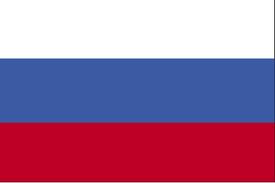 Russian Navy to Receive 2 New Arctic Bases in 2016 - Northern Fleet Commander. Russian Navy to Receive 2 New Arctic Bases in 2016 - Northern Fleet Commander. He added that the Northern Fleet has accomplished all the tasks set for 2016, including the development of the Arctic, the preparation of ships of aircraft carrier group for the long voyage to the Mediterranean, preparation of the warships and submarines to carry out military tasks. With about a third of its territory located north of the Arctic circle, Russia is interested in developing projects in the region. In November, Russian President Vladimir Putin called for accelerating the development in the Arctic region. Sputnik News
Sit With Santa at the Arctic Circle. Santa Claus Village in Finland attracts half a million visitors a year. Join the elves (postal workers) as they sort through some 700,000 letters to Santa. New York Times
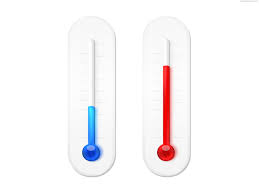 Spiking Temperatures in the Arctic Startle Scientists Spiking Temperatures in the Arctic Startle Scientists. A spate of extreme warmth in the Arctic over the past two months has startled scientists, who warn that the high temperatures may lead to record-low ice coverage next summer and even more warming in a region that is already among the hardest hit by climate change. In mid-November, parts of the Arctic were more than 35 degrees Fahrenheit warmer than observed averages, scientists said, and at the pole itself, mean temperatures for the month were 23 degrees above normal. Although conditions later cooled somewhat, the extreme warmth is expected to return, with temperatures forecast to be as much as 27 degrees above normal beginning Thursday. New York Times
New Prehistoric Bird Species Discovered in Canadian Arctic. Researchers at the University of Rochester have discovered a new species of bird that lived in the High Canadian Arctic about 90 million years ago, when the area had a local climate similar to that of today's northern Florida. The bird fossils, found on western Axel Heiberg Island near Expedition Fiord, in northern Nunavut, are among the oldest avian records found that far north, according to a study published in the journal Scientific Reports. Radio Canada International
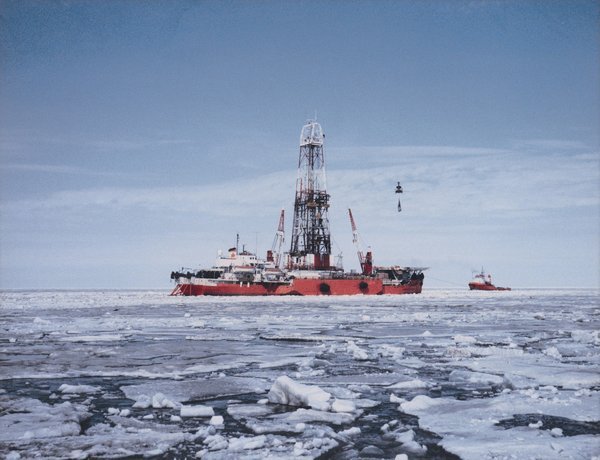 Oil and Arctic: What is at Stake. Oil and Arctic: What is at Stake.
A US-Canadian move to block new leases for oil or gas drilling in sovereign Arctic waters is designed to protect an area already severely disrupted by climate change. The Arctic Circle, which starts 66.5 degrees north of the equator, marks an area where on at least one day of the year there will be no light or no night-and that period is longer, the further north you go. It covers more than 20 million square kilometres (7.7 million square miles), an area bigger than Russia, cutting through northern Canada, Alaska, Russia, Scandinavia and Greenland. About a third of the area is land. Phys.Org
How Warming Arctic is Affecting Your Day-to-Day Weather. Melting sea ice in the Arctic has a big impact on the region's weather, say climate scientists, and those impacts are already starting to affect the weather outside your door. "What happens in the Arctic doesn't stay in the Arctic," Jeremy Mathis, NOAA's Arctic research chief, told the Associated Press. "The Lower 48 may have to deal with more extreme weather events in the future." The Weather Channel
Arctic Inuit, Native American Cold Adaptations May Originate From Extinct Hominids. In the Arctic, the Inuits have adapted to severe cold and a predominantly seafood diet. Now, a team of scientists has followed up on the first natural selection study in Inuits to trace back the origins of these adaptations. The results provide convincing evidence that the Inuit variant of the TBX15/WARS2 region first came into modern humans from an archaic hominid population, likely related to the Denisovans. Science Daily
|
Legislative Action.gif)
No Arctic legislation was formally considered yesterday.
|
|
Future Events
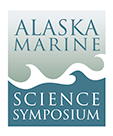 Alaska Marine Science Symposium, January 23-27, 2017 (Anchorage, AK USA). Alaska Marine Science Symposium, January 23-27, 2017 (Anchorage, AK USA). The annual Alaska Marine Science Symposium (AMSS) is Alaska's premier marine research conference. It brings together roughly 800 scientists, educators, resource managers, students, and interested public to discuss marine research being conducted in Alaskan waters. Research will be presented by geographic theme, including the Gulf of Alaska, Bering Sea & Aleutian Islands, and the Arctic. Topic areas will include ocean physics, fishes and invertebrates, seabirds, marine mammals, local traditional knowledge and more. Keynote presentations will be held Monday, January 23rd; Gulf of Alaska presentations will be on Tuesday, Bering Sea/Aleutian Islands on Wednesday, followed by the Arctic on Thursday.
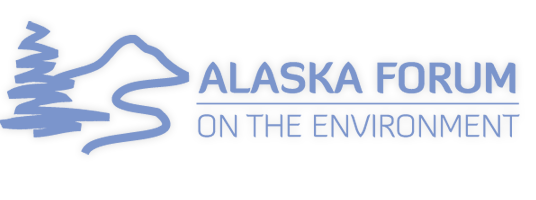 Alaska Forum on the Environment, February 6-10, 2017 (Anchorage, AK USA). Alaska Forum on the Environment, February 6-10, 2017 (Anchorage, AK USA). This statewide gathering of environmental professionals, community leaders, Alaskan youth, conservationists, biologists and community elders will be holding its 19th meeting to continue providing a strong educational foundation for all Alaskans and a unique opportunity to interact with others on environmental issues and challenges. As many as 1,800 people are expected to attend AFE this years meeting.
6th Annual Fletcher Arctic Conference, February 17-18, 2017 (Medford, MA USA). Fletcher Arctic VI, a TEDx-style event, will showcase the ideas, stories, and initiatives of people who live and work in the Arctic. The conference will bring together inspiring leaders, innovative business people, expert scientists, and artists from the pan-Arctic region. Building on The Fletcher School's interdisciplinary approach, Fletcher Arctic VI will be a forum to engage in conversation and spark open and constructive debate between speakers and participants, providing deep insights into this unique and rapidly changing region.
IV International Forum, March 2017 (Arkhangelsk, Russian Federation) Arkhangelsk will host the Forum. The Forum will be titled Human in the Arctic and will be aimed at putting together joint efforts of the international community to promote effective development of the Arctic region as a territory for comfort life, work and leisure. The Forum will be attended by government officials, representatives of international organizations and prominent business communities, centers for political studies, Polar researchers and members of the international Arctic expeditions, foreign political scientists and economists, Russian and foreign journalists from leading international media organizations. The Forum will be attended by the President of the Russian Federation, Mr. Vladimir Putin. Additional information will be announced here.
- The Arctic Cryosphere
- Pollution in the Arctic
- Human Health Aspects of Pollution and Climate Change
- Global and Arctic Systems Feedback Mechanisms
- Resilience within Arctic Ecosystems
- Science and Policy Making
- Socio-Economic Drivers and Impacts of Arctic Change
Organizers announce a call for abstracts which are due by December 2, 2016. The event is organized by the Arctic Monitoring and Assessment Program (AMAP).
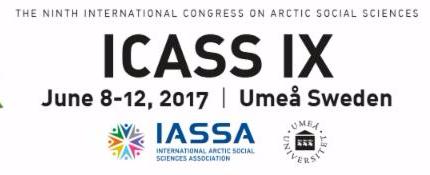 Ninth International Congress of Arctic Social Sciences: People and Places (ICASS IX), June 8-12, 2017 (Umeå, Sweden). ICASS IX's theme is People & Place. Research on social sciences and humanities have a great responsibility to address the challenges for sustainable development in the Arctic, with a specific focus on the many different parts of the Arctic and the people that live there. The multiple Arctics have lately been addressed by many policy makers and researchers. The purpose is often to counteract the stereotypic understanding of the Arctic too often represented by icebergs and polar bears. A focus on people and place highlights the many variances across the region in terms of climate, political systems, demography, infrastructure, history, languages, legal systems, land and water resources etc. Ninth International Congress of Arctic Social Sciences: People and Places (ICASS IX), June 8-12, 2017 (Umeå, Sweden). ICASS IX's theme is People & Place. Research on social sciences and humanities have a great responsibility to address the challenges for sustainable development in the Arctic, with a specific focus on the many different parts of the Arctic and the people that live there. The multiple Arctics have lately been addressed by many policy makers and researchers. The purpose is often to counteract the stereotypic understanding of the Arctic too often represented by icebergs and polar bears. A focus on people and place highlights the many variances across the region in terms of climate, political systems, demography, infrastructure, history, languages, legal systems, land and water resources etc.
The 2nd Asian Conference on Permafrost, July 2-6, 2017 (Sapporo, Japan). Delegates will participate in state-of-the-art oral and poster presentations in the modern city of Sapporo (host of the 1972 Winter Olympics). Field trips will visit marginal and extrazonal mountain permafrost sites that support unique geo-eco-hydrological features. All aspects of frozen ground research will be covered, from needle ice to deep permafrost, from frozen ground engineering in cities to permafrost on volcanoes, and from links between frozen ground and ancient cultures to present-day outreach. Plan now to enjoy science and engineering, excellent food, and unique field trips in Sapporo.
Co-hosted by U.S. National/Naval Ice Center (NIC) and the U.S. Arctic Research Commission (USARC). A biennial symposium originating in 2001 that focuses on U. S. naval operations and national strategic issues in an "ice-free Arctic." This symposium brings together nationally and internationally recognized experts on Arctic observations, climate change, and maritime operations.
- Small and off-grid community energy solutions
- Oil and gas development
- Renewable energy
- Regulation and Financing
- Transportation and transmission
The AES is a multi-disciplinary event expected to draw several hundred industry officials, scientists, academics, policy makers, energy professionals and community leaders together to collaborate and share leading approaches on Arctic energy issues.
 Polar Law Symposium 2017 and Rovaniemi Arctic Spirit, November 13-16, 2017 (Rovaniemi, Finland). The purpose of the Polar Law Symposium is to examine, in detail, the implications of the challenges faced by the Polar Regions for international law and policy and to make recommendations on appropriate actions by states, policy makers and other international actors to respond to these emerging and re-emerging challenges. The Rovaniemi Arctic Spirit Polar Law Symposium 2017 and Rovaniemi Arctic Spirit, November 13-16, 2017 (Rovaniemi, Finland). The purpose of the Polar Law Symposium is to examine, in detail, the implications of the challenges faced by the Polar Regions for international law and policy and to make recommendations on appropriate actions by states, policy makers and other international actors to respond to these emerging and re-emerging challenges. The Rovaniemi Arctic Spirit
Conference is integrated with the Polar Law Symposium, which will be organized by the Northern Institute for Environmental and Minority Law at the Arctic Center of the University of Lapland.
 POLAR 2018, June 15-27, 2018 (Davos, Switzerland). POLAR2018 is a joint event from the Scientific Committee on Antarctic Research (SCAR) and the International Arctic Science Committee (IASC). The SCAR meetings, the ASSW and the Open Science Conference will be hosted by the Swiss Federal Institute for Forest, Snow and Landscape Research WSL under the patronage of the Swiss Committee on Polar and High Altitude Research. The WSL Institute for Snow and Avalanche Research SLF is organizing POLAR2018. POLAR 2018, June 15-27, 2018 (Davos, Switzerland). POLAR2018 is a joint event from the Scientific Committee on Antarctic Research (SCAR) and the International Arctic Science Committee (IASC). The SCAR meetings, the ASSW and the Open Science Conference will be hosted by the Swiss Federal Institute for Forest, Snow and Landscape Research WSL under the patronage of the Swiss Committee on Polar and High Altitude Research. The WSL Institute for Snow and Avalanche Research SLF is organizing POLAR2018.
|
|

  
4350 N. Fairfax Drive, Suite 510
Arlington, VA 22203, USA
External links in this publication, and on the USARC's World Wide Web site ( www.arctic.gov) do not constitute endorsement by the US Arctic Research Commission of external Web sites or the information, products or services contained therein. For other than authorized activities, the USARC does not exercise any editorial control over the information you may find at these locations. These links are provided consistent with the stated purpose of this newsletter and the USARC Web site.
|
|
|
|
|
|
|
|
|